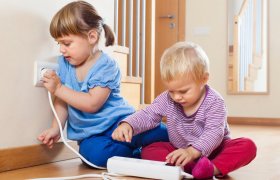Parenting Gets hard and It Causes You to Question Everything, It Will Pass
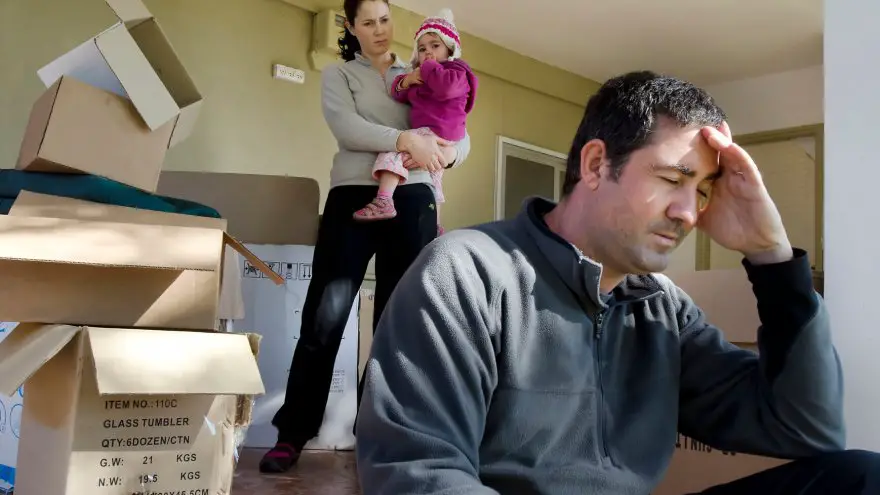
No one’s ever said that being a parent is easy. Being a parent definitely brings a wealth of a certain indescribable joy into our lives—but still—being a parent is not easy in the least. The experience of being a parent will always be accompanied by a mixture of delight and difficulty—and although the levels of delight and difficulty wax and wane as your children get a little older and grow into adulthood—parenting young children is undoubtedly extremely tough.
You can probably think of some pretty basic examples of the trials of parenting younger kids: there’s the simple fact that since the kids are young, it’s still a new experience that can frankly be a bit daunting; there’s the temper tantrums and seemingly endless crying, the sleepless nights, the messes, the financial concerns, etc. But do you want to know what the hardest part about parenting really is? The answer is this: being a parent makes you question everything—and more precisely—it makes you question everything about yourself. These questions include ones about your choices and decisions, your beliefs or moral codes, questions about your levels of psychological and emotional endurance, and questions about your own identity within this wild and crazy universe.
In one way, having a kid is like putting in an additional mirror in your home—a mirror where the reflection that you’re looking at is much more complicated than just your face and body. The mirror that you look in day in and day out when you’re parenting young children, is a mirror that reflects back to you your inner self. On some days, you’re going to feel like you’re looking into a funhouse mirror where everything is all twisted and distorted and you don’t recognize a thing.
Don’t fret though, because there will be days when you like what you see. Parenting is a learning experience, and that doesn’t mean simply learning how to be a good parent—the learning experience of parenting is one in which you learn so much about yourself and the world around you.
When Struggling with Doubt
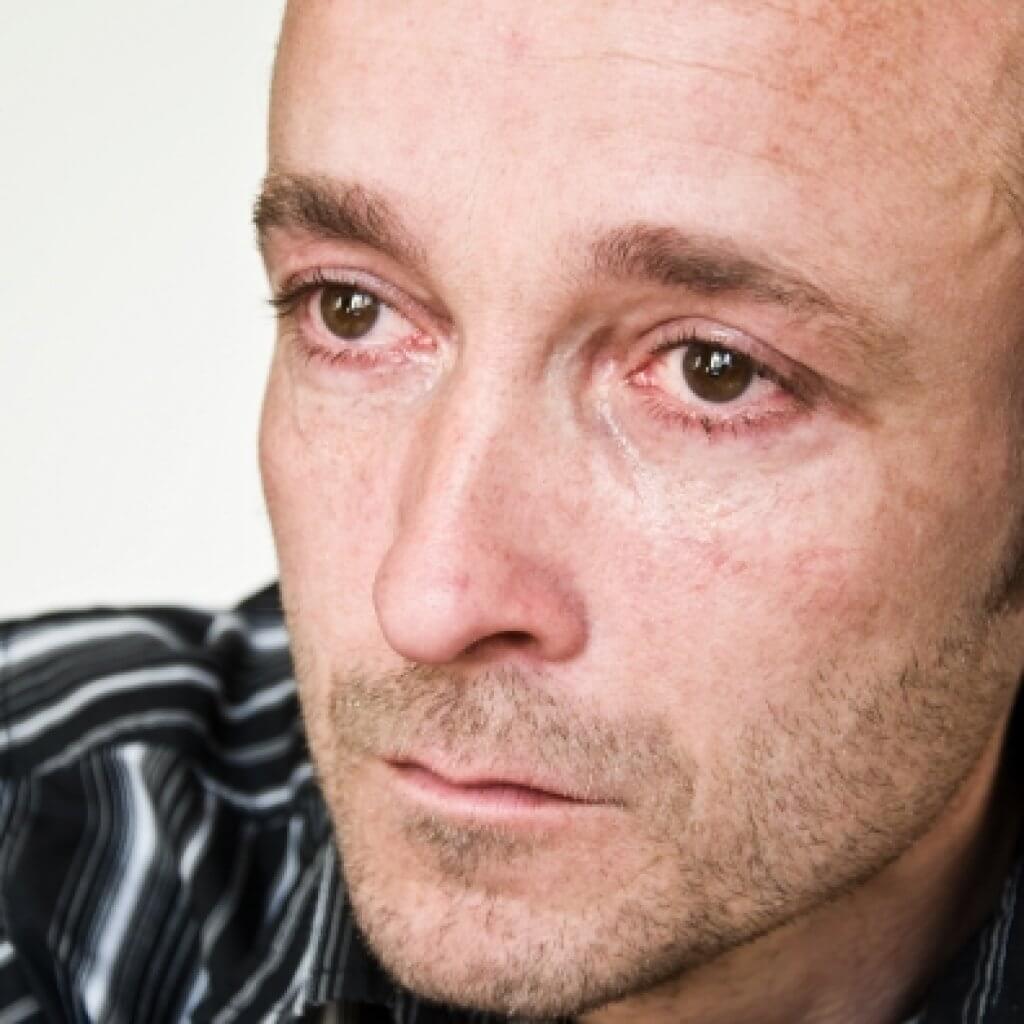
As a parent of a young child, you will constantly be confronted with a sense of doubt that can sometimes seem paralyzing; that’s totally understandable—and even more so—it’s totally natural. If you’re having your first kid or you’re having your second one only a year or two after the first, the whole experience of being a parent is still so new. We all have doubts in regards to our abilities whenever we’re learning something new—but when you doubt yourself as a parent—that’s the type of doubt of that makes you question if you’re doing the right thing—meaning questions that relate to taking the right course of action that determines the course of actual lives (both the lives of your children and you).
Sure, in a certain way you’re questioning your skill level (if you really want to think of parenting as a skill), but the real question is one that relates to your identity as a human being, and how the way you act as a human being affects other human beings. That mean you’re constantly forced to examine the effect you have on the emotional growth of your children, and in turn the effect that your children have on the world due to the influence of your actions and decisions upon your children. For the most part—up until a certain age—your kids have only you to look up to, and that’s kind of a heavy responsibility to have on your shoulders. Again, you’re always going to be wondering if you’re doing the right thing for your children—and whether you realize it or not—doing the right thing for your children also means doing the right thing in terms of how your children are potentially going to interact with the world. That sounds like a lot to swallow, but that’s no reason to let yourself become crushed by the boulder of intimidation.
The Correlation Between Doubt and Weakness
Feeling doubt can definitely be a blow to your confidence and self-esteem. In the case of parenting, you’re not just doubting your ability to be a parent. When you doubt your ability to be a parent, it means you’re having doubts about your strength as an individual. This can definitely make you feel low—and maybe in some cases—you might feel a little embarrassed.
We all want to appear strong and unbreakable. But no matter how strong we want to appear, it’s foolish to think that we can be and act strong at all times.
We all have moments of weakness, and that’s perfectly ok. There’s nothing wrong with questioning whether or not you are in fact weak. But think about this: it takes a lot of guts to even admit to yourself that you feel weak, and having guts means being a strong individual. Your ability to accept that you feel weak at times means you’re an emotionally mature person who isn’t afraid to really examine yourself.
You also have to remember that there is absolutely nothing wrong with admitting any feelings of weakness to others whom you trust. Talking about your feelings with others will only make you feel better, comforted and validated. In fact, this is something you’ll learn when you help your children get through hard times. We all need a shoulder to lean on, and you shouldn’t hesitate to reach out if you’re feeling confused, defeated, or ashamed.
There Is No Way to Be Prepared
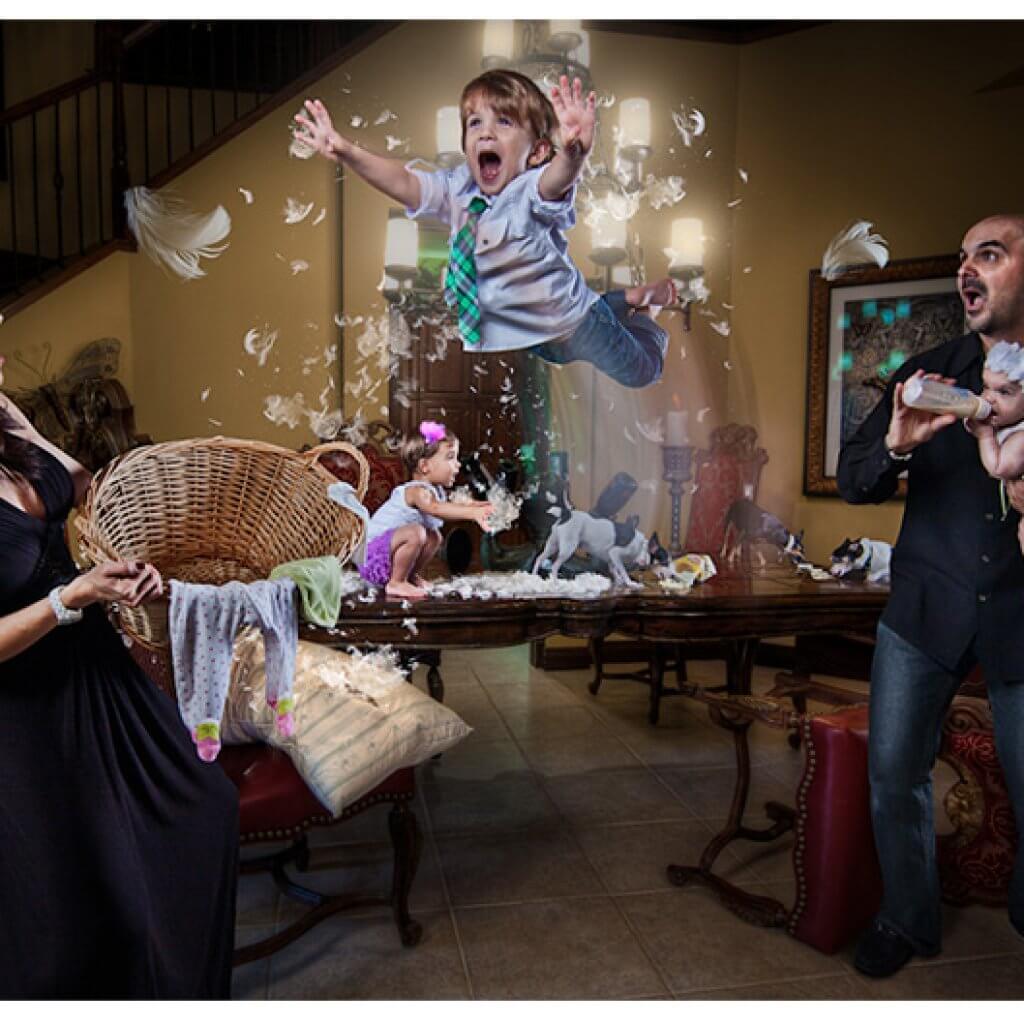
One thing that can really cause you to doubt yourself, is that there isn’t any way to properly prepare for having a child. You may think you know exactly what it is you’re getting yourself into when you have children—but in actuality—you don’t entirely know until you’re actually a parent.
You can read every baby book or parenting book in the entire world, but you have to remember that every situation for every parent is going to be different. You have to take into account your own unique personality and worldly perspective, and you’ll also have to think about the personality of your spouse or partner. Given the fact that we’re all unique individuals, it’s important we remember that the combination of personalities of two unique individuals (the parents) are going to create another and also have influence over a unique individual (the child).
So now, you have to go at this parenting business with your own particular foundation of beliefs, principles, and desires. Sorry to tell you this, but if you think that you’re going to be able to meet some universal model of parenthood given the fact that we’re all a bit different, you’re going to be in for quite the shock.
When you really think about it, it seems kind of crazy that we even expect that there’s really some objective standard in regards to what you should or shouldn’t do as a parent. Even though we’re all in the same boat, we’re all very different from one another in a lot of ways—and this means that we’re putting people into this world that are going to possess their own level of individuality. Often times, we’re not going to be prepared for a set of unique circumstances we might encounter given the unique personalities of ourselves and our children. You have to remember that your child isn’t going to be like every other child. Of course, children definitely have particular similarities, but particular is the key word here; no one ever said that all children have some underlying universal way of existing within, and relating to the world at large.
Sure, there’s basic stuff you can learn in terms of what you could try in order to help calm your child or help her interact with others, but every child is going to react a bit differently to your guidance. And if your child does react differently to your guidance, that’s totally ok. Just because you don’t get the results you expect from certain efforts you put forth, it doesn’t mean you’re doing it wrong.
Are you going to feel like you’re doing it wrong? Of course you are. But again, that doesn’t mean that you are in fact doing the wrong thing (you won’t feel wrong about every decision or action you take, but you will at many a time). The only thing you can really prepare yourself for, is that you’re going to perpetually compare yourself to other parents and your ability to effectively parent, which is certainly going to put you in the throes of doubt and confusion. There’s so much information out there, so many judgments you may feel you receive, and so much advice others will give you—there’s no way you wouldn’t be able to compare yourself to the ways other people parent their children and whether or not you’re doing it how it’s “supposed” to be done.
We compare ourselves to others no matter what we’re doing, and that applies to the parenting realm as well. And when your children are young, comparing yourself to other parents is going to be even more frightening and disheartening because you’ve never done this before—you simply don’t have the years of experience to feel confident, but that in no way means that you shouldn’t feel confident about what you’re doing as a parent. Confidence as a whole comes by building little bits of confidence along the way.
Although you’re going to question a lot of parenting decisions you make, you need to have faith in yourself and you need to know that you have the strength to push forward. If you’re in constant and crippling doubt—and this doubt drives you to the point of seeming powerlessness—then you’ll never be able to become the parent you want to be. Don’t worry if what you encounter is not what you prepared for; all you have to do is make sure you do what feels right to you. You’ve made it this far by trusting yourself and having faith in yourself; why stop now?
Give Up on ‘Perfection’
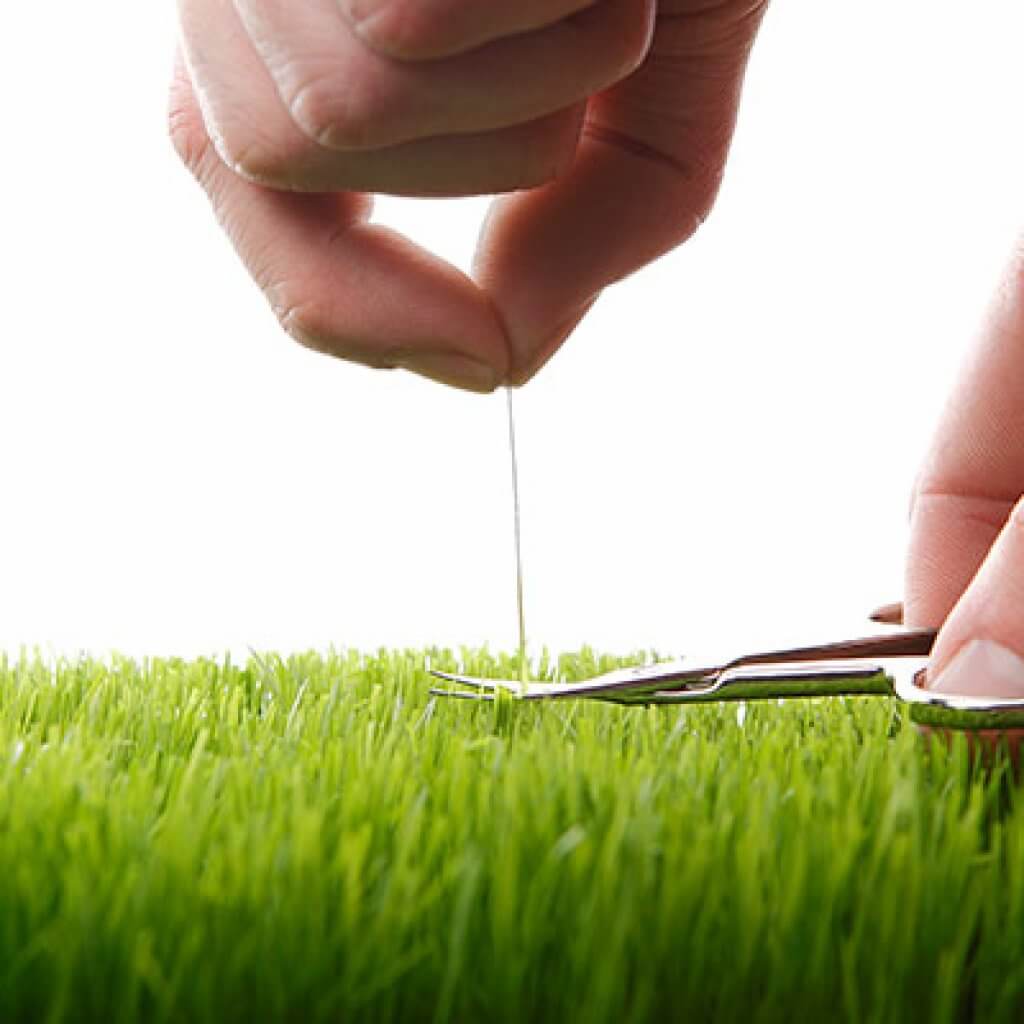
So, you’ve had a particular issue with your child that you feel you’ve solved: good for you; that’s excellent. But you know what, something else is going to arise. Parenting is not smooth sailing, and as a parent you certainly won’t be sailing in a straight line. Parenting is filled with ups and downs and zig-zags and curves and going forward then backwards. Put quite simply: you’ll never have a sense of complete stability.
Not having stability is certainly hard—but just because there’s really no sense of continuous balance—it doesn’t mean that your parenting experience isn’t going the way it’s supposed to. In fact, this lack of cohesion is exactly what you should expect. Is it scary? You bet. Should you let it destroy you? Not at all.
You need to understand that ups and downs are just part of the process. It happens a lot with young kids, but even when your children have reached adulthood, you’re still going to experience some discord from time to time. Yes, it would be great if parenting was a totally harmonious experience at all times, but it’s just not the way it works. That’s just not how life works; why would parenting be the only part of our lives where we experience complete stability?
Remember, what you should expect is moments of turmoil and confusion. This doesn’t mean that parenting is only total chaos; all it means is that you’ll have bumps in the road and some tumultuous times. But you have to trust me on this, the joys of parenting far outweigh the periods of discouraging pandemonium.
It’s Not a Reflection on You
Another thing you have to keep in mind here in terms of stability, is that instability in no way translates to you being an unstable individual. Time and time again you’re going to internalize the way your children act as a reflection of yourself. You can’t help that, and it’s not to say it should be completely ignored. But that doesn’t mean you’re a total basket case just because your parenting experience isn’t staying at a level of constant calm. You may feel some days like your kids are driving you crazy, but that doesn’t mean that you yourself are in fact crazy.
When You Question your Moral Compass

When we talk about doing the right thing for our children, we don’t always mean just doing the right thing for our children’s happiness, wellbeing, and ability to flourish and thrive. Sometimes, we often wonder if the choices we make are going to affect the morals of our children, which in turn can make us question morals we feel we may or may not have.
“Am I bad person?”: we’ve all asked ourselves this questions before. Though, the question becomes a little more complicated when we ask ourselves “Am I a bad person? And does that mean that my kid is going to be a bad person when she reaches her teenage years and moves on into adulthood? What kind of example am I setting here?”
This is totally normal. We all want our children to do what we think is right—not just for themselves, but in terms of how their right or wrong choices play into the way their lives unfold and how their choices affect others. We all see little bits and pieces of ourselves in our children, and it’s possible that when we see our kid do something that we find morally reprehensible, we may wonder if in fact we as individuals and parents live by the standards we feel that we’ve set.
Of course, your child isn’t going to know right from wrong from the very get go, but there’s going to be a time—even if your kid is still young (let’s say elementary school age)— where you feel that your kid should already know better. When you feel like your kid should know better, you’re definitely going to question if you’ve effectively taught them the difference between right and wrong—which could very well make you question if you yourself even know the difference between the right or wrong thing to do.
Here’s a tip: don’t worry yourself to death about it. You can’t blame everything your child does or doesn’t do on yourself. That’s not to say you have no part in shaping the lives of your children, and it’s not say that you can just completely absolve yourself of any responsibility, but there’s just certain things you don’t have complete control of. Just because your child takes certain actions that you don’t deem appropriate, it doesn’t mean that you in fact possess the very qualities that might cause your child to take a particular action.
Being Responsible
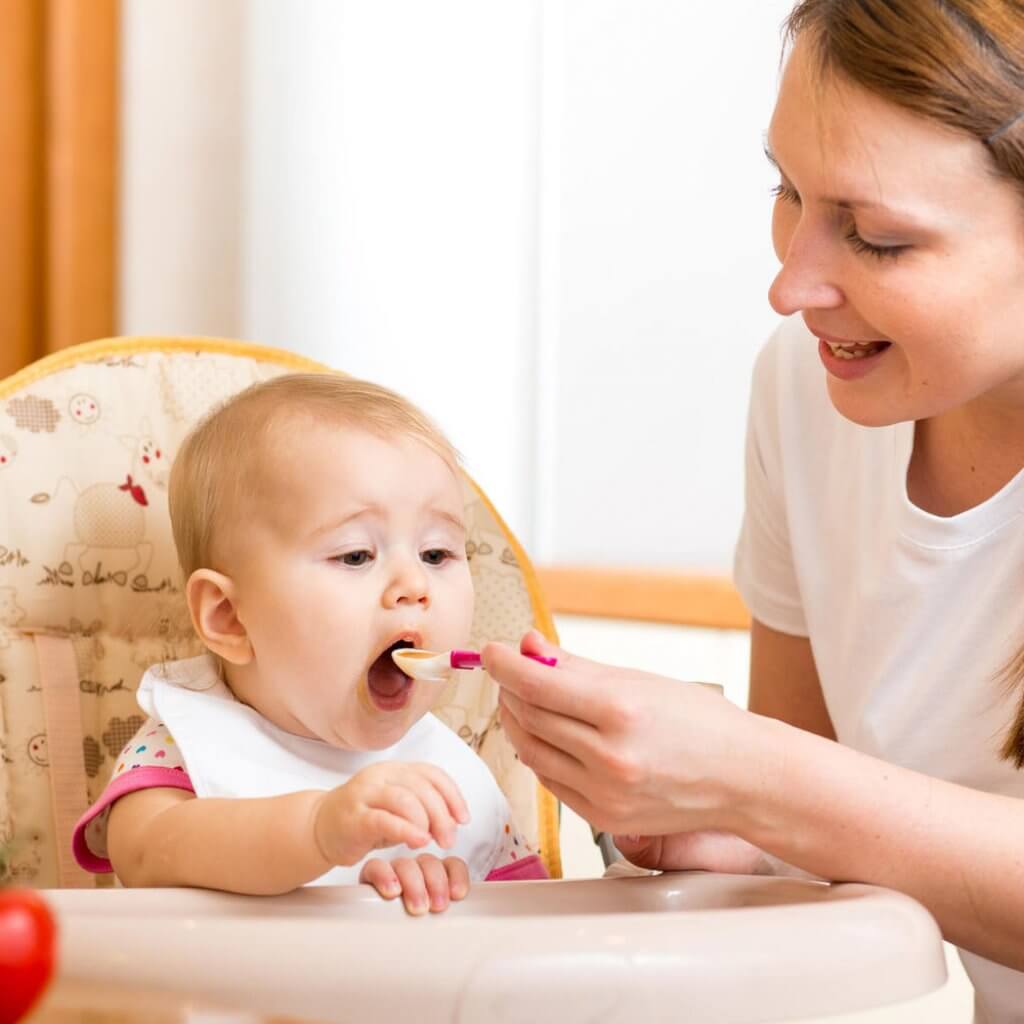
Examining whether or not you are in fact a responsible adult is related to more than just whether or not you feel your kid is doing the right thing. Sometimes questioning how responsible you are or aren’t can be as simple as to whether or not you’re giving your kids the right food, teaching them healthy habits, putting them to bed at a reasonable hour, or just providing them with the basic necessities and a good quality of life. Being responsible doesn’t always mean we’re talking about how your children act, it also has to do with giving your children what they need.
A lot of parents have to struggle with juggling work and parenting. You’re going to come home from work exhausted, and you might just simply be too tired to put the effort into making sure your kids get a well-balanced meal; you may not feel you have the energy to help with homework, or you feel like you can’t deal with anything your child might need so you just sit them in front of the tv in order to get some rest. There’s nothing wrong with wanting to take time to yourself and even doing so every now and then.
When you do encounter the times where you feel you can’t provide for your children everything they need (both practical and emotional necessities) because of the other turbulence that you experience outside your household, it’s completely understandable that you would question whether or not you are a responsible adult. Having a child is probably the greatest responsibility one could have (don’t worry, that doesn’t mean it’s impossible), and when you’re trying to take care of a wide array of responsibilities at once—and you simply feel to physically and emotionally drained to do so—you might come to the conclusion that just aren’t responsible.
Every parent feels this way. But think about this: there’s really no totally successful way to juggle all these various responsibilities. That doesn’t mean that carrying out your responsibilities will never be successful, it just means that you aren’t going to get it right at every step of the way. One day you’ll probably mess up at work, another day you’ll do something that you feel is an erroneous way to be dealing with your children. If it makes you feel any better, just let the two mishaps balance each other out. You’re not going to get everything right every time. Parenting is tough, work is tough, relationships are tough: did you really think you’d be able to perfectly balance all these things at once?
You have to remember that none of us are superhuman. And let’s look at this way: the fact that you’re even wondering if you’re responsible (just as is the case when questioning your strength) you’re probably a pretty responsible person. Often times, people who have no sense of responsibility don’t think about the fact that they may or may not in fact possess a strong sense of responsibility. You’ve got to give yourself some credit here. Maybe you actually were totally irresponsible up until now. If that’s the case, then that’s great; that means you’re on your way to becoming responsible. Either way, it’s important for you to understand that even questioning your ability to be responsible is a responsible act in itself.
Handling Feelings of Guilt and Remorse
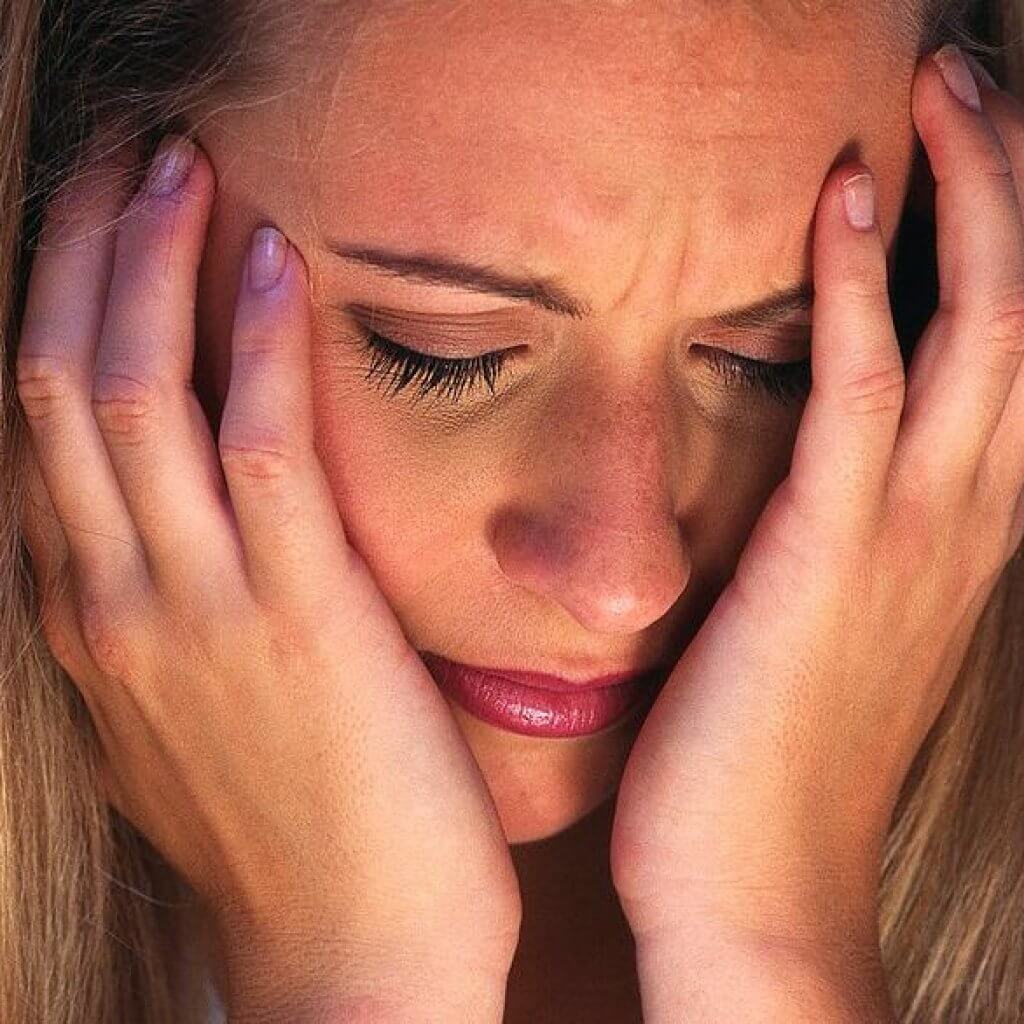
You may not want to hear this, but there could be very well be a time when you feel like your children are a burden, and that the burden of having children simply is too much, and you wish you’d never made the decision to have children to begin with (even if this thought is only fleeting, and most often times it is). It’s perfectly reasonable that looking at your children as a life-draining burden as opposed to a wonderful blessing would cause you to feel guilt.
If you do find yourself feeling regret which then causes a feeling of guilt, you have to remember that you aren’t the first person to have these thoughts. Again, the feelings of regret are typically only fleeting thoughts. We all have fleeting thoughts that we most likely don’t really believe.
Let’s say you’re fighting with your spouse or partner, and you say to them “I hate you!” Does that mean you really hate your spouse or partner? Maybe so, but in a majority of cases, probably not. You might hate that you’re in a particular difficult situation, and sometimes that difficult situation might be related to your children. Don’t forget, being a parent is extremely difficult, and nobody likes difficulty. You may come to appreciate a difficulty you’ve overcome in retrospect because you feel it’s made you a stronger person, but being in the tight grip of difficulty is in no way pleasant or fun.
The guilt you might feel in regards to any possible regret as it relates to having children can occur whether you planned to have your child or not. If you find that you’re going to have a child and you weren’t expecting to be expecting (and you’re excited about what awaits you), you could very well wish you had done certain things differently when times get super tough. If you had thoroughly thought out and consciously made the decision to bring life into this world, you could wish you hadn’t made that choice at some point down the line. In either circumstance, it’s easy to beat yourself about it. But really, why waste your energy on feeling guilty for experiencing fleeting moments of regret? It simply isn’t worth it.
The energy you put into your feeling of guilt could be put into something different: like spending time with your child or trying your hardest to connect on a positive level with your kid. There’s going to be lots of emotions swirling around when raising a child, but you can’t let every single negative one hold power over you and let that emotion cause your life and emotional stability to completely deteriorate.
Again, the regret is only temporary (if you experience it all), but no matter how much you love your child, you’re going to at one point think, “What did I do?” You know what you did? You brought someone into your life and into this world with whom you will cultivate a beautiful relationship. Cultivating deep and meaningful relationships is not an easy thing to do, and that’s one thing that makes special relationships worth the effort. Parenting isn’t always going to be fun, but that doesn’t mean you made the wrong choice or should regret the fact that you have children.
So, while parenting means you get to experience the bliss of a beautiful and loving relationship with another human being who looks up to you—one that you’ve brought into this world, it also means that you’re going to struggle. That struggle is worth it—and often times—struggling together only creates even stronger bonds.
Being a parent is a learning experience. You get the opportunity to sort of relearn about the world through the eyes of your child, and you’ll learn so much about yourself while raising your kid and watching her grow into a kind, creative, unique, and intelligent adult. You get the symbiotic learning experience of passing knowledge to your child, and your child in turn can help you look at the world in ways you never thought possible.
Yes, parenting at times can undoubtedly feel like an absolute albatross of a burden—one that’s filled with uncertainty, anxiety, and hardship. But remember this: every trial and tribulation you experience whether it be related to parenting or not is ultimately going to make you a better, stronger person. Life is a process, and learning and growing through the process of parenthood is truly a wonderful experience.
Having a child—whether you realize it or not—is ultimately going to force you to have to either examine for the first time, or reexamine almost everything about yourself and your personal identity. Parenting is more than just raising a child, it’s the cultivation of a relationship with another human being that is simultaneously a journey inward. Of course you’re going to question yourself as a parent, but life itself is full of questions, and parenting is just one way that you find out some of the answers.


